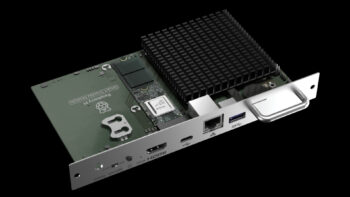This is no longer just a trend. It is a technological landing on an unprecedented scale. The just-announced investments by Microsoft and Nvidia in UK AI infrastructure, totalling tens of billions of dollars, signal that the global race for AI dominance is entering a new, brutally capital-intensive phase.
The UK, with its favourable regulatory environment and strategic location, is emerging as a key battleground in this battle.
The arms race in the cloud
The figures speak for themselves. Microsoft has pledged to invest $30 billion by 2028, half of which will be spent on physical data centre expansion.
Nvidia is adding $15bn (£11bn), in partnership with hyperscaler Nscale and GPU cloud provider CoreWeave, with plans to deploy 120,000 of its latest Blackwell Ultra GPUs.
These activities are not isolated. They are part of a global boom in infrastructure construction that, according to Dell’Oro Group, lifted data centre spending by 43% year-on-year to a dizzying $158 billion in the second quarter.
Microsoft alone committed more than $24 billion in the last quarter. There is a gold rush at stake with computing power capable of training and supporting the next generation of AI models.
The collaboration between Nvidia, Microsoft, OpenAI and Nscale on the Stargate UK project shows the ambition of the project. This is not simply an extension of a server room.
It is an attempt to create a supercomputer and ecosystem from scratch to attract the best talent and most advanced AI projects to the British Isles.
Why the UK? Geopolitics and data sovereignty
The sudden influx of such huge capital into one country is no coincidence. In an era of rising geopolitical tensions, privacy concerns and increasingly stringent data sovereignty requirements, the UK is becoming a safe haven for US tech giants.
It offers a stable regulatory environment, proximity to the European market and status as a global financial centre.
Competitors have long recognised this potential. In recent years, Amazon has pledged investments of more than $10 billion in its AWS infrastructure in the region.
Oracle plans to spend $5 billion and Google has just opened a new data centre as part of a nearly $7 billion investment.
These decisions are a direct response to growing demand from businesses. Gartner predicts that spending on cloud infrastructure will increase by more than 21% this year to $723 billion. Even more impressive is the projected growth in spending on artificial intelligence alone, which is expected to reach almost $1.5 trillion by 2025.
Companies need to build data centres where their customers are and where regulations allow.
The wave of investment flooding into the UK is more than just money and equipment. It is a strategic move that could permanently change the technological map of Europe.
1 Consolidating Power: These investments cement the position of a few key players – Microsoft, Nvidia, AWS and Google – as the foundation on which the future of AI will be built. It will become increasingly difficult for smaller companies to compete at the infrastructure level.
2 New Gravity Centre: The UK is becoming the undisputed leader in Europe in terms of computing power for AI. This could attract a wave of startups, researchers and capital, creating a self-perpetuating Silicon Valley-like ecosystem.
3 Challenges and Risks: The concentration of such massive infrastructure in one place raises questions about energy security and energy demand. Furthermore, it remains an open question as to how much of the profits from this revolution will stay in the UK and how much will feed into the accounts of US corporations.
One thing is certain: the spending frenzy is not slowing down. Microsoft is already announcing further investments in the US and Norway. Nvidia is deploying hundreds of thousands of its processors worldwide.
The UK has won an important battle to become a key hub in the global AI network. However, the long-term war for talent, innovation and real economic benefit is only just beginning.












